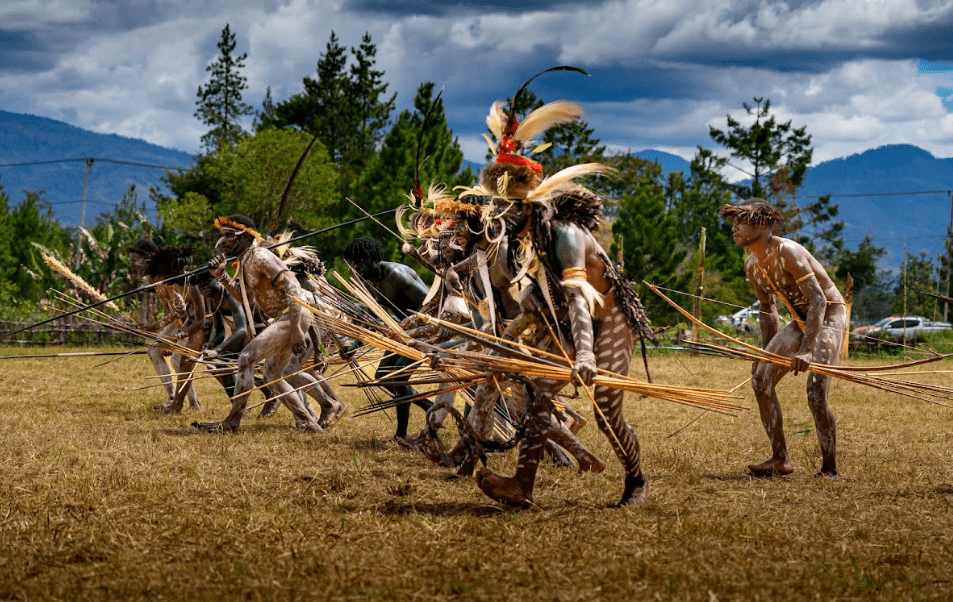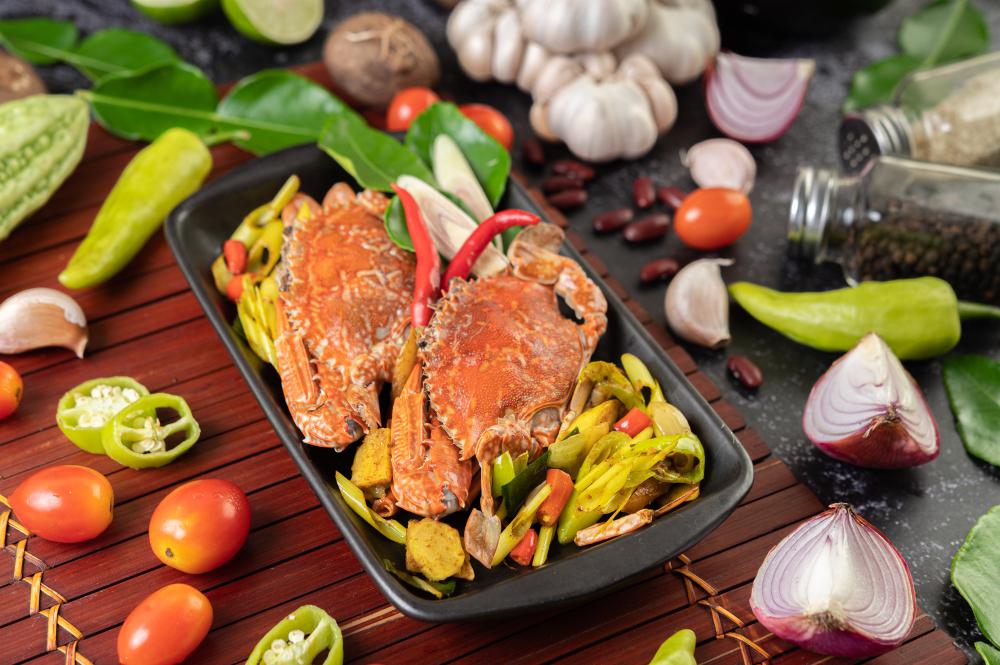Papua, one of Indonesia’s provinces rich in culture, possesses a variety of unique traditional attires, each carrying profound philosophical meanings. These traditional garments serve not only as clothing but also as a representation of identity, social status, and the deep connection of Papuan communities with nature. Below are three distinctive traditional attires from Papua, along with their descriptions and symbolic meanings.
1. Koteka
Koteka is a traditional Papuan garment worn by men to cover their genitals, while the rest of the body is left uncovered. It is made from the dried and hollowed-out skin of a bottle gourd. The koteka is long and tube-shaped with a tapered end, often decorated with forest chicken or bird feathers at the tip. It is worn by tying it around the waist with a string.
Philosophical Meaning:
The koteka symbolizes simplicity and the close relationship between the Papuan people and nature. Additionally, the size and decorations of the koteka can indicate the wearer’s social status and maturity. For example, unmarried men typically wear a koteka positioned upright, whereas married men or those with high social status wear theirs tilted to the right.
2. Yokal
Yokal is a traditional attire worn by married Papuan women, particularly in the West Papua region. This garment is made from woven tree bark and has a distinct reddish-brown color. Yokal is commonly worn during traditional ceremonies and daily activities.
Philosophical Meaning:
Yokal represents maturity and a woman’s marital status. The use of natural materials, such as tree bark, signifies the harmony between the Papuan people and their surrounding environment. Additionally, Yokal serves as a symbol of identity and the role of women in Papuan society.
3. Grass Skirt (Baju Kain Rumput)
The Grass Skirt, or Baju Kain Rumput, is a traditional outfit worn by both men and women in Papua. It is crafted from dried sago palm fronds, which are soaked, dried, and woven traditionally to form a garment. The process of making this attire is quite intricate and requires special craftsmanship.
Philosophical Meaning:
The Grass Skirt represents the creativity and craftsmanship of the Papuan people in utilizing natural resources. The use of sago palm leaves highlights their dependence on and respect for nature. Additionally, this garment symbolizes simplicity and the unique cultural heritage of Papua, which has been preserved for generations.
Each traditional attire from Papua is more than just clothing—it carries deep philosophical meanings, reflecting the values and social structures of its people. The uniqueness and beauty of these garments stand as a cultural treasure that must be preserved and honored.



